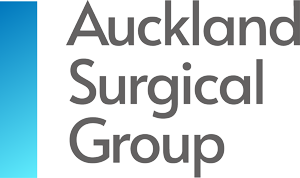Weight loss surgery FAQs
1. Am I a good candidate for weight loss surgery?
Bariatric (weight loss) surgery may be an option if you struggle with being overweight and have not had success with other weight loss methods. It can also help if you have health conditions such as type 2 diabetes, high blood pressure, or sleep apnoea. Every patient is different, so the best way to know is to talk with our surgical team about your health and personal goals.
2. What types of weight loss surgery are offered at AWLS?
We specialise in several types of weight loss surgery, including the gastric sleeve (sleeve gastrectomy), the Roux-en-Y gastric bypass, and the One Anastomosis Gastric Bypass (OAGB) – also known as the mini bypass. Each option works a little differently, and our surgeons will help you decide which is best for your needs.
3. How much weight can I expect to lose?
Most people lose between 50–70% of their excess weight within 12–18 months after surgery. Your exact results will depend on your surgery type, your starting weight, and the healthy habits you build after surgery. The goal is not just to lose weight, but to keep it off and improve your health long term.
4. Will I still need to diet and exercise after surgery?
Yes. Weight loss surgery is a powerful tool, but it works best when combined with healthy eating and regular activity. Our full, specialised support team will guide you through every step so you can make sustainable changes that last.
5. What are the risks of weight loss surgery?
All surgery carries some risks, such as infection, bleeding, or blood clots. Weight loss surgery also carries specific risks, such as leaks or nutritional deficiencies. Our experienced team will explain these clearly and work closely with you to keep risks as low as possible.
6. How long will I need to stay in hospital?
Our patients usually stay between 1-2 nights in hospital after weight loss surgery. Your exact stay will depend on your recovery and the type of procedure. Our team will make sure you feel safe and ready before you go home.
7. How soon can I get back to normal activities?
You can usually get up and walk the day after weight loss surgery, and many people return to light work within two to three weeks. More challenging exercise and lifting should wait until six weeks after surgery. You will see a physio post-surgery before your discharge who will talk to you through this and answer any of your questions.
8. Can I become pregnant after weight loss surgery?
Yes. In fact, many women find it easier to conceive after weight loss surgery. However, it’s important to avoid pregnancy during the first 12 months after surgery, when weight loss is most rapid. Talk with your GP about safe contraception and planning for a healthy pregnancy in the future.
9. Will I need to take vitamins after surgery?
Yes. Because weight loss surgery changes how your body absorbs nutrients, you will need to take daily vitamins and supplements for life. This ensures your body gets enough protein, iron, calcium, and other essential nutrients to stay healthy. For the first two years after your surgery, our team will organise regular blood tests and keep a close eye on your results. If you need any extra supplements, we will prescribe them for you. After this, we ask your GP to continue with yearly blood tests to make sure everything stays on track.
10. Is there support after my surgery?
Absolutely. At AWLS, support is a key part of your care. From your very first call or email with us, our team of surgeons, dietitians, health psychologists, nurse practitioner, and front office staff will be here to guide and encourage you. We walk beside you through every step of your two-year post-surgery journey, so you never feel alone.
Develop a healthier relationship with food, without guilt or shame.

